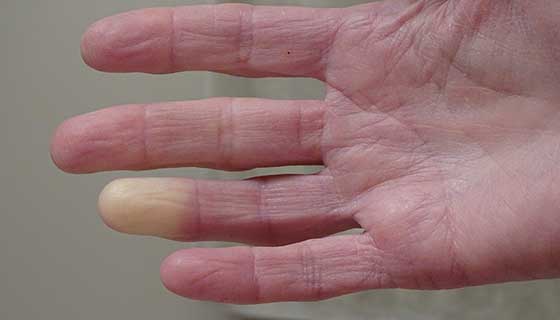Lupus Treatment
Lupus treatment primarily involves treating your inflammation to protect your organs and prevent flare-ups. The best approach to treating your lupus is a plan tailored to your specific needs. It should consider the type of lupus you have, the severity of your inflammation and the damage to your organs that has occurred.
Keep in mind that this plan may take some time to create and may need to be adjusted as your symptoms and your needs change. In addition to controlling your systems, the overall goals of your treatment plan will be:
-
Reduce your inflammation.
-
Prevent flares and treat them as they occur.
-
Minimize damage to your organs.
Whatever treatment you choose, talk with your doctor about the benefits, risks and side effects. It’s also important to have regular exams and lab tests to track your lupus and adjust your treatment as needed.
Finding the Right Lupus Treatment Plan for You
Your doctor may recommend one or a combination of the following:
-
Hydroxychloroquine: an antimalarial drug that is effective for treating lupus-related arthritis and rashes. It reduces flares by 50 percent and may also help prevent blood clots.
-
Corticosteroids and immune suppressants: often recommended for people with serious or life-threatening problems such as kidney inflammation, lung, heart or central nervous system lupus. This includes high-dose corticosteroids such as prednisone and drugs that suppress the immune system, such as azathioprine, cyclophosphamide, mycophenolate and methotrexate.
-
Biologics: target specific parts of the immune system instead of affecting many areas of the immune system. Belimumab is FDA-approved for treating lupus.
Other Treatments for Lupus-related Complications
Your doctors may prescribe other medications to treat problems that are common with lupus. Some of those include:
-
Anticonvulsants for seizures
-
Antibiotics for infections
-
Antihypertensive drugs for high blood pressure
-
Statins for high cholesterol
-
Drugs for osteoporosis
-
Vitamin D to help improve kidney lupus
Maintaining a Healthy Lifestyle
Maintaining a healthy lifestyle can help manage your lupus symptoms. Here are a few easy ways to take care of yourself:
-
Eat a heart-healthy diet.
-
Maintain a healthy weight.
-
Exercise several times a week.
-
Reduce your sun exposure by staying out of the sun as much as possible, wearing clothes that cover your skin and using sunscreen of SPF 100.
-
See your doctor for infections.
-
Don’t smoke.





